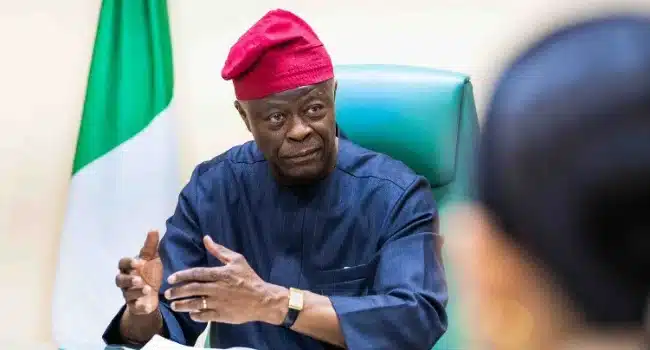The Minister of Finance and Coordinating Minister of the Economy, Wale Edun, has commended the Central Bank of Nigeria’s (CBN) monetary policies designed to address inflation, calling them praiseworthy and effective in their efforts to stabilize the economy.
Reports indicate that the Yemi Cardoso-led CBN’s decision to raise interest rates faced criticism from the Manufacturers Association of Nigeria (MAN). The association argued that the policy, while aimed at curbing inflation, would have a negative impact on the manufacturing sector by increasing borrowing costs, potentially hindering production and job creation within the industry.
Despite this criticism, Wale Edun defended the CBN's actions during his speech at the CBN’s Monetary Policy Forum on Friday. He emphasized that the policy, while challenging in the short term, is ultimately designed to help restore credibility to Nigeria’s monetary framework and ensure long-term economic stability. According to Edun, the efforts to control inflation were necessary for reinforcing investor confidence in Nigeria’s economic direction and improving the country's fiscal and monetary outlook.

In a statement issued by the Ministry’s spokesperson, Mohammed Manga, Edun reiterated President Bola Tinubu’s unwavering commitment to ensuring that fiscal and monetary policies are aligned to promote economic stability and growth. Addressing the forum’s theme, “Managing the Disinflation Process,” he acknowledged the CBN’s ongoing efforts to combat inflation and strengthen the overall monetary framework of the nation, which he believes are essential steps in restoring fiscal balance and boosting Nigeria's global economic standing.
Edun also highlighted the transformative changes that have taken place within Nigeria's foreign exchange system. Specifically, he pointed to the shift from a previously opaque and preferential allocation model to a more transparent, market-driven system. This shift, he argued, has significantly boosted investor confidence and allowed for a clearer and more accurate economic outlook, which has been beneficial for Nigeria's interactions with international rating agencies.
On the issue of inflation, Edun strongly supported the CBN’s continued commitment to stabilizing prices and maintaining economic resilience in the face of external and internal challenges. He stressed that price stability is a key element of ensuring a healthy economy, as it contributes to long-term growth, enhances the purchasing power of citizens, and attracts foreign investment. Moreover, he underscored the importance of consistency in the data across government institutions, as this would enhance transparency and lead to more accurate economic indicators that could better inform policy decisions.
In addition to supporting monetary policy, Edun called for essential structural reforms, particularly in the agriculture sector. He emphasized that increasing food supply would be critical in alleviating inflationary pressures, as rising food prices remain one of the most significant contributors to overall inflation in the country. Edun warned, however, that inconsistency in policy implementation could result in the erosion of market confidence and hinder Nigeria’s efforts to tackle inflation effectively. He emphasized the need for a stable and predictable economic environment that would foster investment, job creation, and long-term economic development.
Finally, Edun reiterated his strong support for the CBN’s policies, emphasizing that it is crucial for the government to maintain a well-coordinated effort between fiscal and monetary authorities to achieve sustained economic growth and stability. He concluded by expressing confidence that, with a concerted and synchronized approach between all relevant stakeholders, Nigeria would be able to overcome its current economic challenges and emerge as a robust, competitive economy in the global market.
“With a coordinated approach between fiscal and monetary authorities, Nigeria is poised to overcome its economic challenges and emerge as a strong and competitive economy,” he said.

